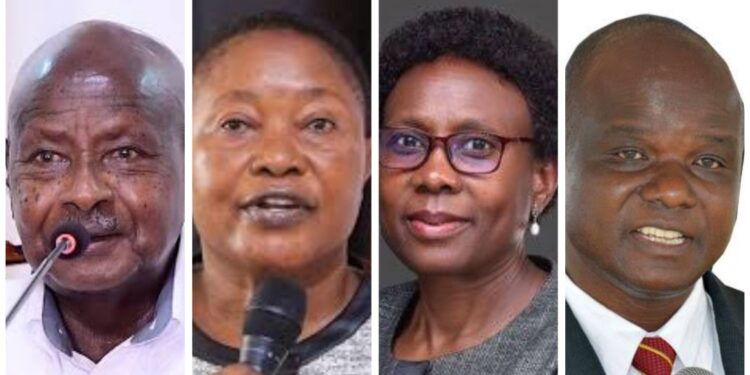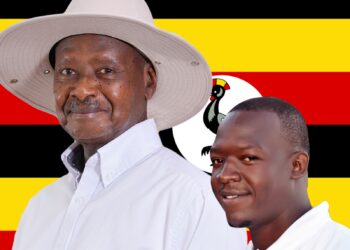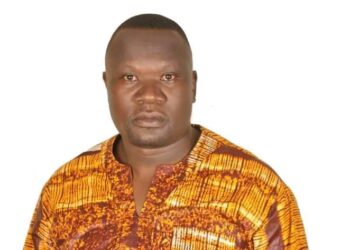The recently announced US government aid cuts from the USAID purse will significantly negatively impact HIV/AIDS services in Uganda, particularly in the provision of antiretroviral (ARV) drugs and other essential services. The suspension of funding has led to a funding gap, which may compromise the quality of services and the achievement of our national HIV/AIDS response goals. Yes, it is a worrying situation but we are working to mitigate the impact and ensure continuity of services.
Uganda was receiving over $350 million annually from the US government for health programs, including HIV/AIDS . Currently, this funding has been suspended. Although, temporary waivers were later announced by the US government they do not fully address the funding gap created. Government of Uganda is exploring alternative sources to bridge the funding gap. The Ministry of Finance has promised to find emergency funding to cover the gap for the remaining three months of the financial year. They have also promised to find money to cover the entire gap created as a result of the US government decision to suspend funding for health and HIV/AIDS.
As part of our strategy to cope with the aid freeze, the Ministry of Health has issued an integration guideline to minimise duplication and ensure efficiency and effectiveness in the delivery of services. The Uganda AIDS Commission is coordinating the development of the sustainability road to ensure that for Health and HIV/AIDS services are transitioned from the current donor-driven approach to a government- led HIV response. Uganda AIDS Commission under the supervision of the Presidency has made several high level advocacy meetings for additional government support including funding. Uganda is coping by mobilising domestic resources, exploring alternative funding sources, and prioritizing essential services . The government is working to allocate additional resources to bridge the funding gap. We are also engaging with development partners, civil society, and the private sector to support development of the sustainability plan for the national HIV/AIDS response.
Patients are still receiving services, although there may be some disruptions due to the funding gap. The Ministry of Health is working with other stakeholders to ensure continuity of services, particularly for those on ARV treatment. Health facilities are being supported to maintain essential services, and we are exploring innovative ways to deliver services. We are literally thinking on our feet to keep normal services accessible.
On the other hand, to stem the escalation of the disease, Uganda AIDS Commission recommends mobilising community support. We need to engage communities, civil society, and the private sector to support our response. We need an Innovative service delivery approach. We need to explore innovative ways, including the use of technology and community-based interventions.
Our target of eliminating HIV/AIDS as a public health threat by 2030 is ambitious, and the US government aid cuts may compromise our progress. However, we are committed to achieving this goal and are working to mitigate the impact of the funding gap. On the side, this speaks to the need to drive out economy faster in the right direction to create a system of self-sufficiency going forward. Donors can always review their terms of engagement and never, as country, should we be found incapable of having home-grown solutions.
The Government of Uganda is engaging with the US Government to explore possibilities for restoring funding. We are also engaging with other development partners to mobilize support for our national HIV/AIDS response.
Therefore, I wish to allay the fears of patients, caretakers, service providers and partners at different levels in the HIV/AIDS response that Government of Uganda is fully awake to the challenge posed by the USAID aid freeze and doing all possible to mitigate the effects.
The National Resistance Movement (NRM) Manifesto 2021-2026 pledges on securing the health and well-being of Ugandans through improved Human Capital Development programmes remains alive. In Government planning, all factors, the seen and unseen, the likely and unlikely, are considered. In assessing delivery on various commitments, Ugandans should always take note of the foreseeable and unforeseeable challenges that hamper effective service at different levels. Regardless, Uganda is unique in that we have always counted on meagre resources to achieve much. That is how when Covid-19 hit in 2020 and 2021, with the visionary leadership of H.E Yoweri Kaguta Museveni, we managed to beat back the pandemic as it devastated many other places that were better resourced.
The lesson is that with good and patriotic leadership and cooperation of the public, we can win our battles against all manner of killer disease. A better mobilised public health system with units all the way to the parish and through Village Health Teams (VHTs) will bridge any gaps that arise. If all else fails or complementary, we return to the basics with which Uganda famously beat back prevalence rates of the 1980-90s at 18% to 5% today. The ABC prevention formula remains most viable for our people. Either Abstain, Be faithful or (use) Condoms!
The Presidential Fast-Track Initiative (PFTI) to end AIDS by 2030 as launched on June 6th 2017 remains on course. I thank the US Government for the support extended to Uganda all these trying years that, no doubt, saved millions of lions through various interventions. Appreciation also goes to Global Fund, UNAIDS, and other partners for the life-saving support. Together, in abundance and inadequacy, let’s work towards achieving an HIV/AIDS-free world!
The author is the Minister for the Presidency
Do you have a story in your community or an opinion to share with us: Email us at editorial@watchdoguganda.com













